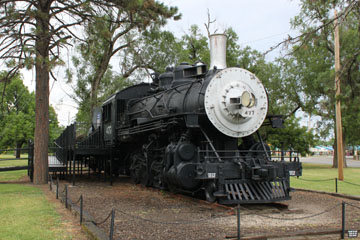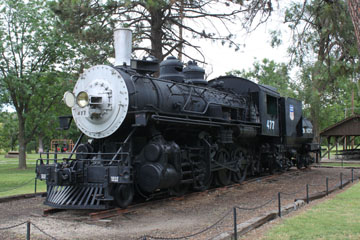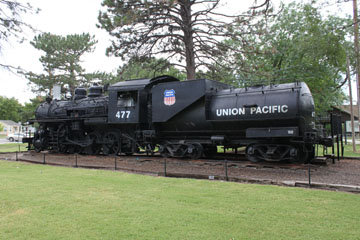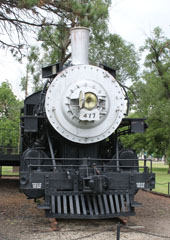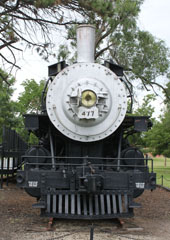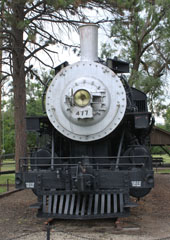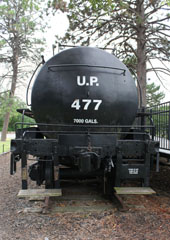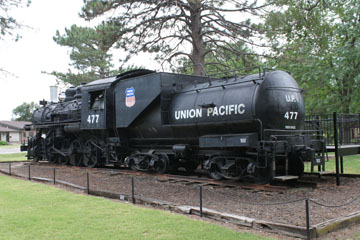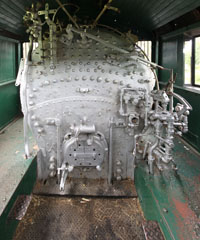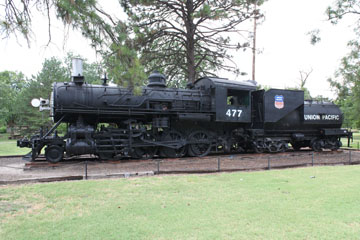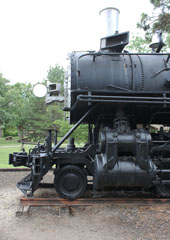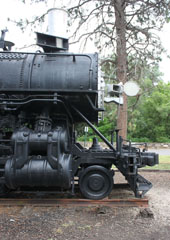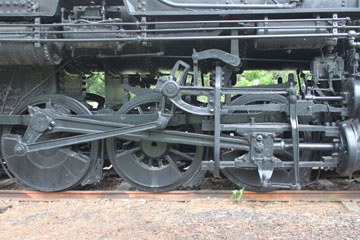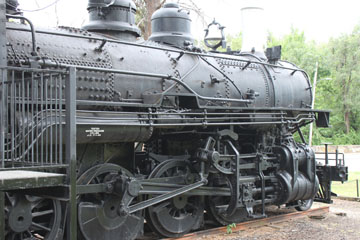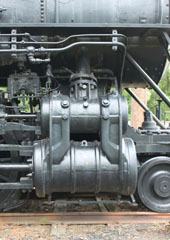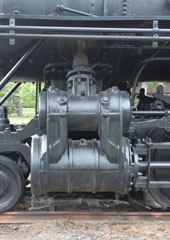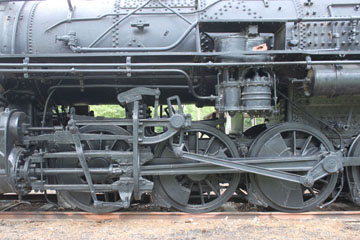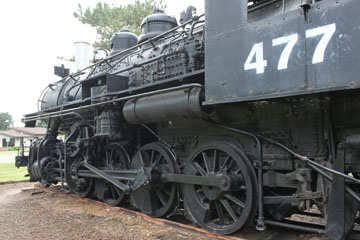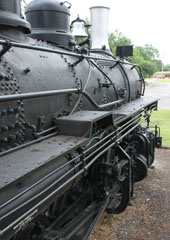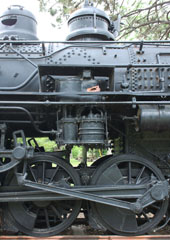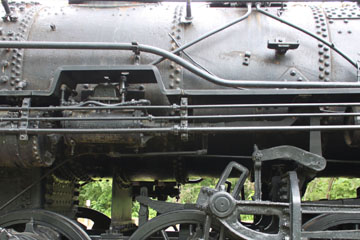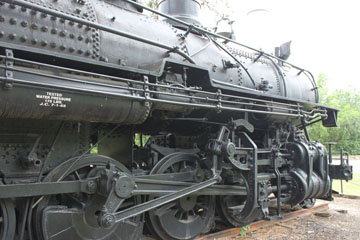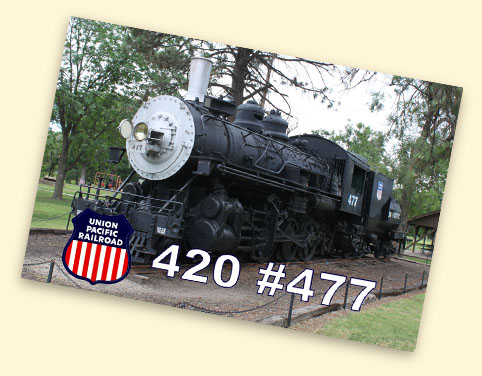

#477 was built in 1901 as #1697 for the Union Pacific by Burnham, Williams & Co., an early incarnation of the Baldwin Locomotive Works, one of fifty eight Class 1640 Consolidation type (2-8-0) Vauclain compound locomotives (#1640-1699). In 1915, the class was renumbered Class 420 #420-#477, #1697 becoming #477.
As built, #1697 weighed 184,870 lbs, 160,570 lbs on its 57”
drivers. The driver wheelbase was 15’ 3” and the engine
wheelbase 23’ 11”. Fitted with Stephenson valve gear and
15½” x 30” high pressure cylinders and 26” x 30” low pressure, it had a 33.9 sq ft grate and 247.2 sq ft firebox. With a total heating surface of 2,502 sq ft and operating at a boiler pressure of 200 psi, it delivered 31,719 lbs tractive effort. The tender weighs 115,798 lbs light and has a capacity of 6,000 gallons of water and 11 tons of coal.
Like all of the other Vauclain compounds bought by the Union Pacific in the early 20th Century, the 1640s were soon converted to simple expansion locomotives. The main advantage claimed for compounding was lower fuel and water consumption, but this was seldom the case.
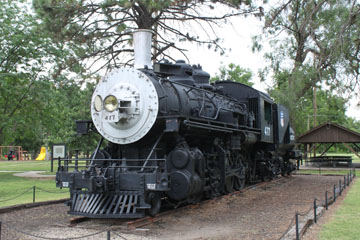
Some time later, the UP added a 417 sq ft Schmidt superheater, removing 136 small tubes in favour of 28 flues, but little else changed. The engine weight rose to 187,891 lbs, 163,205 lbs on the drivers. The firebox dropped to 191 sq ft and total heating surface to 2,436 lbs. However, tractive effort rose by 20% to 39,458 lbs.
Many of 420 Class worked into the 1950s. #477
was donated to the City of Salina, KS, in 1955 and is on display in Kenwood Park. You can see other 420s on the UP #460 and UP #421 pages of this website.
The Vauclain arrangement produced uneven forces and excess wear at the crosshead, which increased maintenance costs and largely offset any fuel economies. The complex valve assembly and the starter valve, which allowed admission of high pressure steam directly to the low pressure cylinder, also increased maintenance costs.
In 1918, the low pressure cylinders were removed and the high pressure cylinders enlarged to 21” x 30”. The Stephenson valve gear was replaced with Walschaert.


